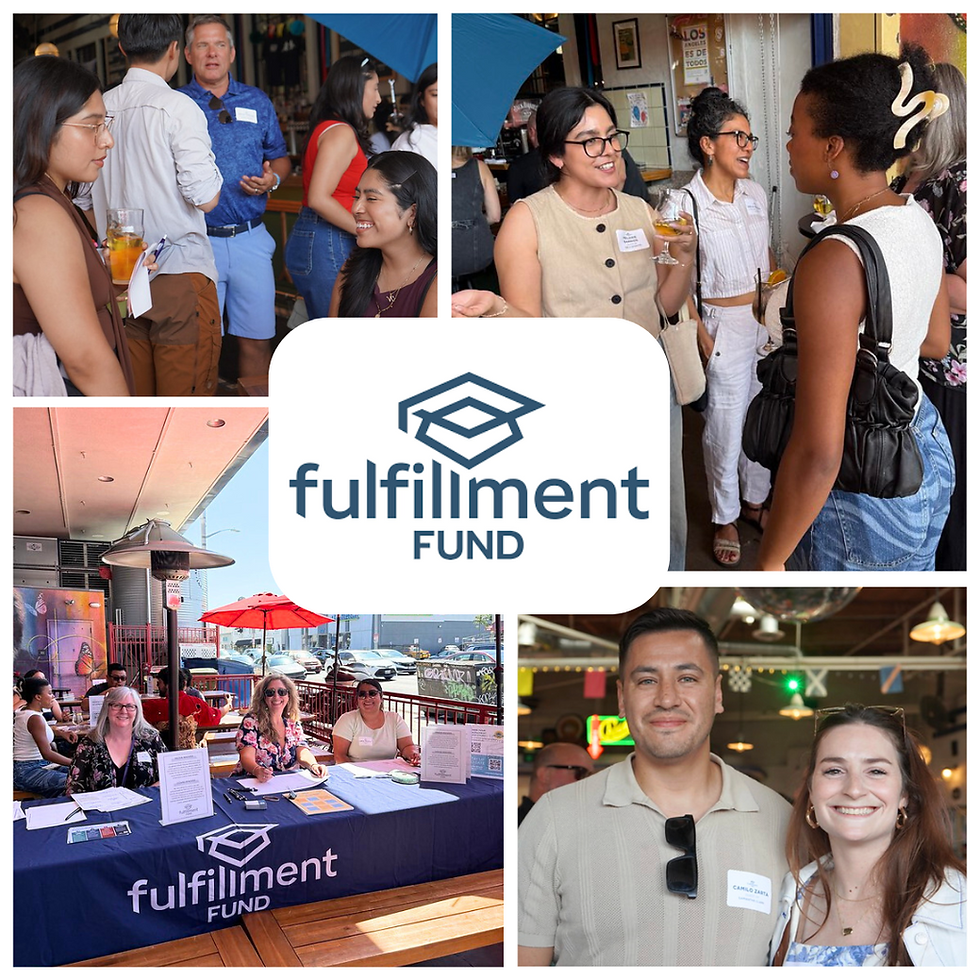The Sarah Ralston Foundation Grantee, ARTZ Philadelphia, Supports Individuals Living with Dementia Through Arts and Culture
- rachael0544
- Feb 5, 2024
- 3 min read

by Abby Rolland
Since 2022, harp-weaver has been engaged by the then-Ralston Center and now The Sarah Ralston Foundation to provide advice and support as the organization has transitioned into a grantmaking entity.
The Foundation provided its first round of general operating support to 28 nonprofit organizations focused on aging in the Greater Philadelphia Area. One of those organizations, called ARTZ Philadelphia (ARTZ PHL), focuses on enhancing the quality of life and well-being of people living with dementia and their care partners through interactions around arts and culture.
Started in 2013 by art historian, curator, and educator Susan Shifrin, ARTZ PHL provides a wide variety of programming, both in-person and digitally, for people living with dementia and the people who care for them. Programs include ARTZ Notes, which invites attendees to participate in interactive music programs; ARTZ @ The Museum programs at various museums around the area and the country that are discussion-based and participant-driven; ARTZ in the Making, hands-on programs at different care communities where participants make art; ARTZ @ Jefferson, an award-winning educational initiative in which people with dementia and care partners mentor medical and other health professions students; ARTZ in the Neighborhood and Music in the Neighborhood, neighborhood-based projects piloted in North Philadelphia; and Cafés for Care Partners, programs specifically designed for care partners that provide respite and fun.
The programs created by ARTZ PHL offer support and service to a broad spectrum of people experiencing dementia – from those in the pre-diagnosis phase to those in hospice care. ARTZ PHL helps meet each and every person where they are while also providing a group setting where people can meet and experience joy together.
“Twelve percent of Philadelphia’s population over the age of 65, or approximately 200,000 people, are affected by Alzheimer’s Disease; that number doesn’t include people with other dementia-related conditions or those who have not yet been diagnosed. Nor does it include their care partners; an estimated one to four care partners supports each person diagnosed with dementia,” Shifrin explained. “Currently, we serve approximately 5,000 people affected by dementia and touch about 38,000 people total.”
“ARTZ PHL’s programs restore agency to those living with dementia – they offer alternatives to the stereotypes of what it means to live with dementia and affirm who people affected by dementia are, along with their life experiences. Engaging in our programs also provides demonstrated mental health benefits to participants – we provide a “quality of life” intervention.”
In addition to providing programs, ARTZ PHL also creates a space for conversation and discussion about dementia to combat the stigmas around it.
Their video series “Conversations about Change” features interviews with professional and family care partners, social workers, artists, and museum educators who have partnered with ARTZ PHL over the years. These interviews launch open conversations about the kinds of changes necessary to create a world in which people living with dementia are valued and supported.
“People living with dementia are often stigmatized as having lost their humanness or the essence of what it means to be human,” Shifrin explained. “In reality, people affected by dementia-related conditions have a broad range of experiences and can still contribute to society in a variety of ways if just given the opportunity.”
For example, the opportunity to express one’s creativity is one beneficial outlet. Research has shown that in some people living with FTD, as the frontal and temporal lobes of the brain are diminished, the visual cortex seems to gain in bulk, and so a person may be more artistically and creatively inclined.
As the population ages and there are a greater number of individuals living with dementia, the need for ARTZ PHL’s programming increases. “People living with dementia are going to require more support and thought,” Shifrin said. That includes increased funding for older adults, which is where The Sarah Ralston Foundation comes into play.
The Foundation specifically focuses on giving grants to organizations focused on serving older adults, including providing general operating support. In its first round of operating support grants in Spring 2023, the Foundation provided support for ARTZ PHL. Shifrin shared the importance of receiving the funds.
“I’m so pleased to sing the praises of The Sarah Ralston Foundation. There is insufficient support of older adults. The Sarah Ralston Foundation and Friends Foundation for the Aging provide critical value in supporting people as they age, particularly in underserved areas and for smaller nonprofits.
“For us, receiving a general operating support grant allowed us to restore programs that were suspended during COVID. This funding has allowed us to keep doing what we’re doing while also finding creative ways to expand digital programming.”
harp-weaver is proud to engage with the Foundation to support a number of organizations, including ARTZ PHL, that provide vital services to older adults in the Greater Philadelphia Area.




Comments